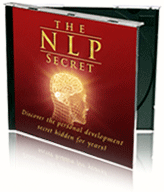HOW TO PASS EXAMS USING TPM
By Graham Morris
TPM, Thought Pattern Management, started out as an educational intervention. Very many TPM techniques are as much about teaching the mind, especially the unconscious mind, new and different ways of doing things rather than as therapeutic techniques.
In our current diseducation system we enable pupils and students to concentrate on the dread NLP word:
FAILURE
We have a situation where the teacher goes through the pupils’ work, correcting all the errors and then encouraging the same pupils to practise those errors.
How familiar is this to you from your school/college days?
You are facing an exam.
Interesting word – ‘exam’. One of those words (semantically dense) that requires little or no processing ; a word packed with meaning and sometimes just the sight or the sound of the word ‘exam’ produces an immediate, and often unpleasant, state change.
So you walk into the exam room and sit there for 45 minutes – 180 minutes trying to remember all the information that you spent so much time revising.
Then the exam ends and a curious thing happens. As you walk out of the exam room you suddenly remember all the information you revised, but it’s too late! The exam is over.
Put simply, this is what happens. The learning, the revision tends to occupy the left brain. Walking into the exam room occupies the right brain. There tends to be a shift over a period of 90 minutes – which is why the 45 minute exams are most disrupted.
I worked with someone recently who was about to take his ‘AS’ Level exams (exams taken at the age of 17).
After explaining the above I implanted a posthypnotic suggestion that allowed the thumb and middle finger to slowly move down a pen held in a vertical position and that action would facilitate the switch from right to left to occur in 30 seconds.
The exam result was an ‘A’ grade.
Here is the full story of how to pass exams using TPM.
First of all a clear and well-formed outcome.
Do a memory cleanse of all earlier school testing. The easiest way to do this is via the TPM Brainwash technique (see INLPTA News Number 6 pp 41-44, December 2003).
Now all negative/unresourceful memories about school testing and exams has been reframed.
Take the pupil/student through The Circle of Excellence.
Make sure that the ‘circle state’ is in the form of a ring or a bracelet that the person can actually wear as they will need to take it into the exam room with them.
If you can find a Circle of Excellence experience that has a connection with previous exams/tests, so much the better.
When you get to future pace the experience get the pupil/student to imagine, while wearing the ring or bracelet, that they can scan the next test, going down the list of questions knowing the full and correct answer to every question.
Anchor this
Take your subject into the TPM Wide Awake Trance (for reference, see above) and:
“I would like to borrow your arm and I’m going to ask your unconscious mind (you are unconscious, mind/obey!) to keep it relaxed and comfortable.
I am going to talk to the Education Specialist (metaphoric part) and I’m going to ask the Education Specialist to take all the information that’s been (phonological ambiguity) studied and package it in such a way that it will be easily and fully accessible during the test/exam.
I’m going to ask you unconscious mind to allow your arm to lower only as rapidly as your unconscious mind completes the process.”
Tell your subject to walk into the exam room and put the Excellence bracelet or ring on the chair and then sit on it.
How to Pass an Exam with No Revision
Working with the same 17 year old mentioned above, we got to talking about revising his least favourite subject, which in this case was French (apologies to our French readers – it was the teaching not the language).
I was a bit surprised when he told me he was going to do no revision at all when it came to French.
He was unconcerned about maybe getting a low grade or not even a pass.
After using the Iceberg Metaphor for the mind – the bit that’s sticking out of the water is the conscious mind, the much, much bigger bit below the water is the unconscious mind – I explained that everything his French teacher had said to him, everything he had read and spoken in French was stored in his unconscious mind. All of that French information.
So he decided to do no revision whatsoever when it came to French.
Using the sliding thumb/finger/pen technique (see above) at the start of the French exam with the added instruction to access the Education Specialist, all went well.
He got an A in French.
© Graham Morris
Contact Graham at
Training Changes
7 Spenser Avenue
Cheltenham GL51 7DX
Tel: 01242 580640
Mble: 07711 370980
e-mail: graham@trainingchanges.co.uk
web: www.trainingchanges.co.uk
Tuesday, 27 January 2009
Subscribe to:
Post Comments (Atom)





No comments:
Post a Comment